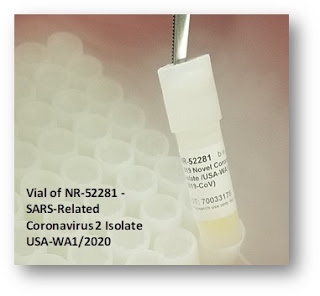27 Apr Culture Collections are Critical in the Response to the COVID-19 Pandemic
Culture collections are critical to solving infectious disease challenges
Biological repositories including culture collections provide essential materials to researchers and clinicians around the world, allowing rapid response to outbreaks of infectious disease. These materials are used in:
- Understanding the properties of the infectious agent
- Developing diagnostic tests to detect and contain the outbreak
- Developing antiviral and antibacterial therapeutics to treat infected individuals
- Developing vaccines to prevent future outbreaks
Specific examples of biological repository contributions to the COVID-19 pandemic
The American Type Culture Collection (ATCC) is the leading biological materials resource whose mission is to acquire, authenticate, produce, preserve, develop, and distribute microorganisms, cell lines, and other materials. Specific materials relevant for the current crisis include:
- SARS-CoV-2 Heat-inactivated virus strain
- Genomic RNA
- Cell lines to grow SARS-CoV-2
- Synthetic and quantitative standards for SARS-CoV-2 molecular assays
- A wide range of materials from other Coronavirus
BEI Resources (Biodefense and Emerging Infections Research Resources Repository), which is funded by the National Institute of Allergy and Infectious Diseases (NIAID) and managed by ATCC, acquires, produces, and distributes a variety of materials to support infectious disease research. These products are used by academia, government entities, private laboratories, pharmaceutical, and biotech companies to basic research and development of antiviral therapeutics. Registration for access to these materials increased 400% in the month of March, 2020. Biological materials relevant to the coronavirus pandemic are currently being distributed to registered users at a very high rate and replenished in-house under appropriate quality control to ensure the demand is met. Materials include:

- Multiple isolates and derivatives of the SARS-CoV-2 virus
- Genomic RNA
- Inactivated virus
- Plasmids with SARS-CoV-2 genes for protein expression, recombinant proteins, etc. that have been deposited by the research community
- Polyclonal antibodies and recombinant proteins developed and produced by the community as well as being produced in-house
- A wide range of materials from other Coronavirus, such as SARS and MERS
The International Reagent Resource (IRR), is a biological reagent repository established by the Centers for Disease Control and Prevention (CDC) and is also managed under contract by ATCC. IRR acquires, authenticates, and produces reagents, tools, information, and controls to registered users for basic research and development of improved diagnostic tests, vaccines, and detection methods. Materials currently being distributed to qualified county and state laboratories in the US in response to the current health crisis include:
- The CDC-approved SARS-CoV-2 (previously titled “2019-nCOV”) Real-Time RT-PCR Diagnostic Panel
- Positive controls of the SARS-CoV-2 virus
- Human specimen controls
How these organizations were able to respond so quickly to the current crisis
Over many decades, these organizations have built a reputation for reliability among the research community. They have become the recognized repositories for researchers to deposit materials in order to make these materials quickly and broadly available to the international research community.
Lessons going forward
Biological collections including culture collections are essential not only in times of crisis, but for furthering discovery and innovation in life science every day. Many collections contain specimens that cannot be replaced because they are historic, rare, or costly. Collection personnel have in-depth knowledge that cannot be replicated. Appreciation of collections that is generated during the current crisis should be followed by appropriate support to allow them to continue to respond to future crises and life science research more broadly.
Sources:
https://atcc.org
https://www.beiresources.org/Home.aspx
https://www.internationalreagentresource.org/Home.aspx
Authors:
Manzour Hazbón, Senior Scientist, Bacteriology, ATCC
Kyria Boundy-Mills, curator, Phaff Yeast Culture Collection, UC Davis
